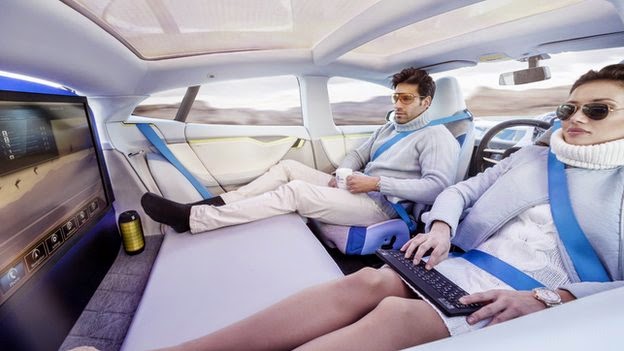Many of us believe that the future will for the most part resemble the past; however, a striking spike in technology forces us to pause.
The Ontario Government announced early this year that it is "looking into testing self-driving automobiles," according to Ontario Car & Auto Insurance News. The article continues that it will be a five-year auto pilot project which the Ministry of Transportation of Ontario "sees in its proposal to test the safety of autonomous vehicles not only a first for Canada, but also an opportunity to thrust Ontario into the limelight as a starring performer in technology development leadership."
But an abstract concept such as leadership is not the main reason for this pilot, rather it is the ability to attract new business and jobs to Ontario that is of greater importance and tangibility. According to a statement by veteran auto insurance consultant Willie Handler, also quoted in the article, "This is a billion dollar industry and it could save the auto sector in Ontario."
In the fall of 2010, Google made headlines by claiming that it had developed a fleet of "self-piloting" Toyota Prius Hybrids, which had already logged over 140,000 miles (combined) mostly on Highway 1 between San Francisco and Los Angeles. Powered by artificial intelligence software and outfitted with a sophisticated GPS system, mapping software, and optical reader and laser sensors, the car could stay on track, know where it was going and see what was happening around it. The car, in spite of its marvels, caused an uproar: not over that people were sharing the car with driverless cars, but that Google wan't sharing the cars with them. According to a recent Fast Company article, "Google's autonomous vehicle has gone on to log 300,000 accident-free miles, mostly on the highways of California and Nevada." And this striking invention has compelled a host of early adopter car companies to follow suit, announcing that their version of the driverless cars will be ready by 2020: Audi, BMW, GM, Nissan, Toyota, and Volvo.
Our reluctance to give up full-control of a vehicle is actually based on very real legal and ethical issues, such as in the event of an accident is the driver, car company, or software company liable? If the human isn't driving, is it his/her fault if a collisions occurs? There is also the issue of the kind of innovative road and highway infrastructure that would accommodate both normal and driverless cars.
And these issues are just a few facing Ontario as it looks ahead to this five-year pilot. Indeed, under our current laws, one needs to be in control of one's car at all times; however, what is considered "under control" must be expanded over time. Indeed, as mentioned above, the concept of 'fault' in the Insurance Act will need to be expanded to facilitate driverless cars from an insurance perspective. Hence, the insurance issues alone throw up a bees nest of complexity for this seemingly simple pilot.
In spite of these issues, however, technology has a history of moving faster than conventionally foreseen. A story in the Wall Street Journal, for example, states that such driverless cars are closer to mass-market development than conventionally believed.


No comments:
Post a Comment